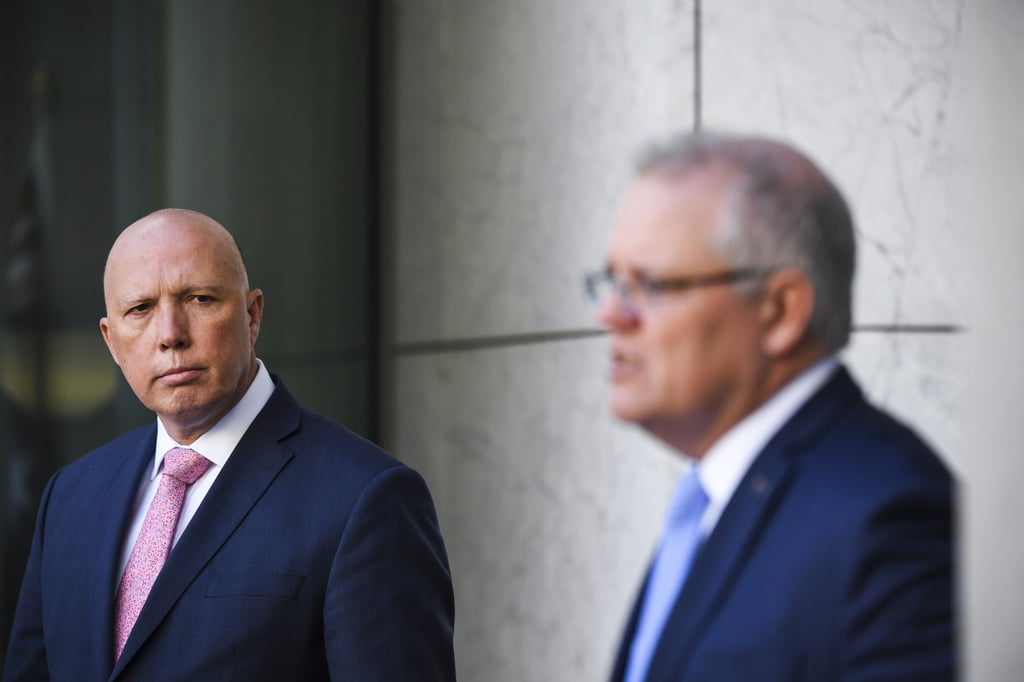Advertisement
Australia-China relations: ‘No doubt’ that Beijing wants to influence May 21 election, PM Scott Morrison’s defence minister says
- Peter Dutton said China’s ‘interference’ in PM’s WeChat account and actions of editors of Chinese newspapers are evidence Beijing is trying to influence election
- Labor Party shadow Defence Minister Brendan O’Connor criticised Dutton for politicising national security and the China debate to win political points
Reading Time:3 minutes
Why you can trust SCMP
41

Australia’s pre-election defence policy debate heated up on Thursday when the defence minister said there was evidence the Chinese Communist Party wanted a change in Australia’s government because a centre-left Labor Party administration would attempt to appease Beijing.
Australian Defence Minister Peter Dutton said China’s “interference” in the Australian Prime Minister’s WeChat account and the presence of Chinese language newspapers in the country are evidence that Beijing is trying to influence the May 21 federal election.
Even though Australian security agencies have said Prime Minister Scott Morrison’s commercially sold WeChat account was not hacked or interfered with, Dutton insisted during a pre-election public debate that the Chinese Communist Party had a hand in its closure.

That, as well as the existence of “elements” he could not disclose publicly, were evidence Beijing wanted the opposition Labor party to win, he said at the event at Canberra’s National Press Club.
Advertisement
“There is no need to embellish the intelligence we are reading, there is no need to pretend that something is happening,” he said.
“The fact is every like-minded country has a similar conclusion about the direction of China.
Advertisement
There is no doubt that – in my mind – that the Chinese Communist Party would like to see a change of government at the 21 May election. No question at all.”
Advertisement
Select Voice
Select Speed
1.00x